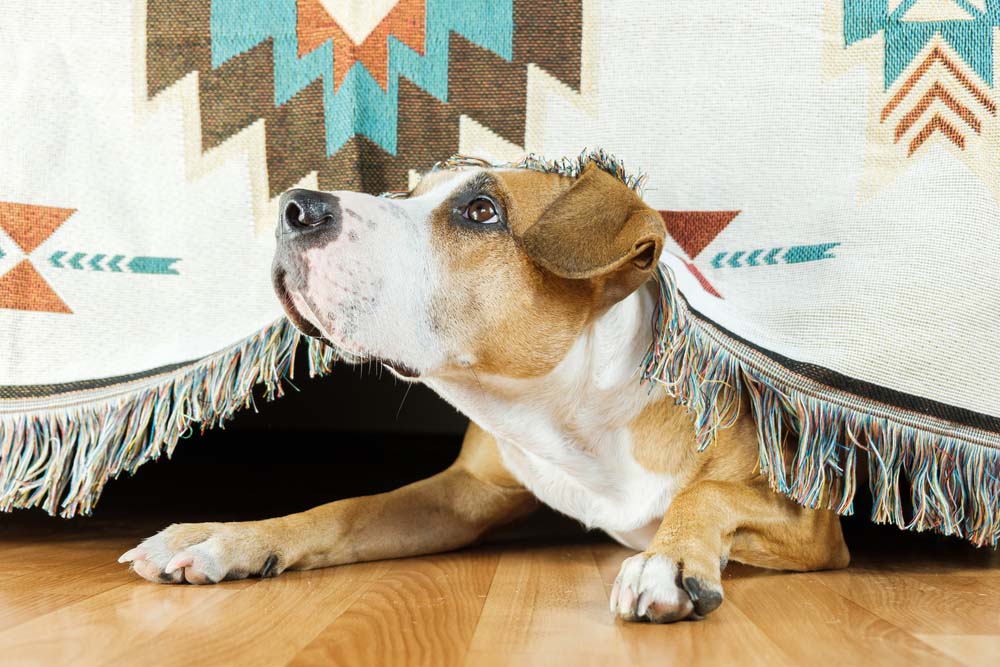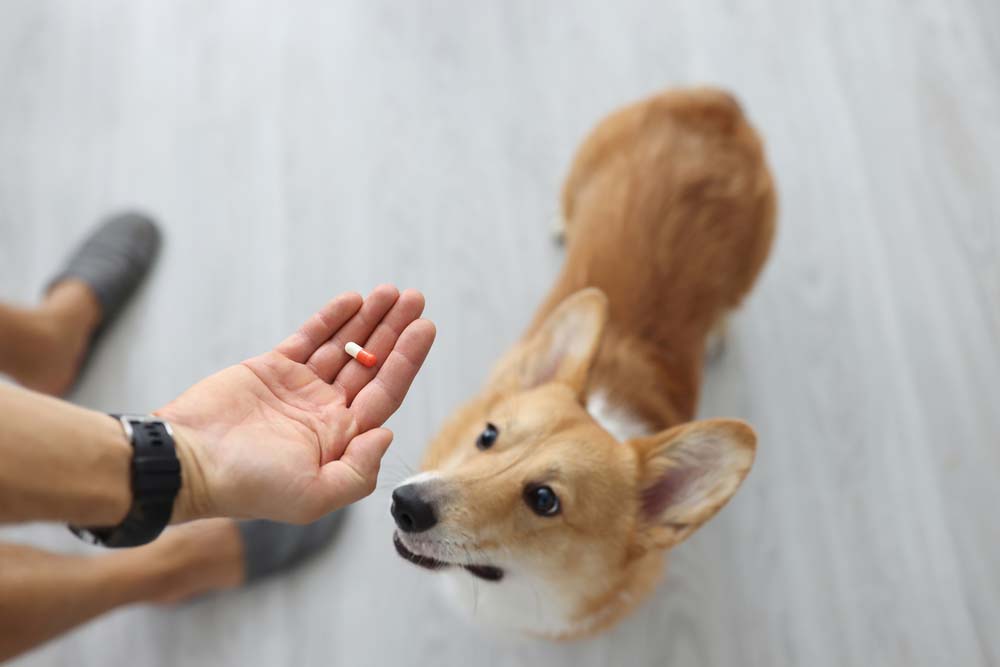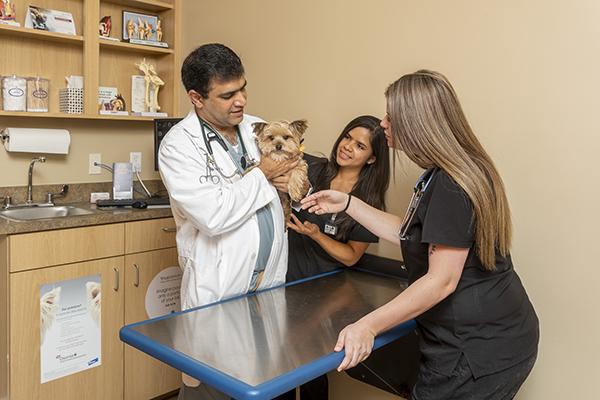Anxiety in dogs is a common condition that can significantly impact their quality of life. Fortunately, there are several effective strategies to help alleviate anxiety and promote a sense of calmness in our canine companions.

Identifying Anxiety Symptoms
Common signs of anxiety in dogs include excessive barking, destructive behavior, pacing, panting, trembling, hiding, and inappropriate elimination. Identifying triggers that cause anxiety in your dog, such as loud noises, separation, or unfamiliar environments, can help tailor the treatment approach to address specific anxiety triggers.
Commonly Misidentified Symptoms
Some symptoms of anxiety in dogs might be mistaken for signs of other health issues. Below are examples of such cases:
Excessive Licking or Chewing
Dogs may lick or chew their paws, legs, or other body parts excessively when anxious. Although these behaviors can be caused by allergies or skin irritations, they may also be a dog's way of coping with stress or anxiety.

Digestive Issues
Symptoms such as diarrhea, vomiting, or loss of appetite can result from gastrointestinal disorders but may also manifest due to anxiety. Stressful situations can upset a dog's digestive system, leading to these symptoms.
Excessive Shedding
Increased shedding may occur in response to stress or anxiety, despite other common causes like seasonal changes or hormonal imbalances.

Aggression or Reactivity
While aggression can stem from various sources, including fear or territorial instincts, it can also be a sign of anxiety. Anxious dogs might react aggressively or become unusually reactive because of insecurity or discomfort triggered by their anxiety.
Excessive Sleeping or Restlessness
Anxiety can disrupt a dog's normal sleep patterns, causing them to sleep more or be restless at night. Though these behaviors can also indicate pain or other medical issues, they might be a response to stress or anxiety.

Considering Anxiety as a Cause
Dog owners need to consider anxiety as a potential cause when noticing these behaviors. A consultation with a veterinarian or a veterinary behaviorist is crucial for an accurate diagnosis and to develop an appropriate treatment strategy tailored to the dog's specific needs.
Treatment Options
Addressing anxiety in dogs involves a combination of medical interventions, behavioral modifications, and supportive strategies to promote relaxation and confidence. Below, we explore various approaches starting with behavioral training.
Behavioral Training
Some ways that you can train your dog to not be as anxious include:
- Positive reinforcement training techniques can help desensitize dogs to anxiety-inducing stimuli and teach them coping mechanisms.
- Counterconditioning involves associating anxiety triggers with positive experiences to change your dog's emotional response. For example, rewarding calm behavior during a thunderstorm can help reduce the fear of loud noises.
Environmental Management
You can also eliminate the triggers of the anxiety by doing the following:
- Creating a safe and comfortable environment for your dog can help reduce anxiety. Provide a quiet and secure space where your dog can retreat during stressful situations.
- Use calming aids such as pheromone diffusers, calming music, or weighted blankets to promote relaxation.
Regular Exercise and Mental Stimulation
Physical exercise and mental stimulation are essential for maintaining your dog's overall well-being and reducing anxiety. Engage in daily walks, playtime, and interactive toys to keep your dog physically and mentally active.

Dietary Supplements
Certain dietary supplements, such as omega-3 fatty acids, L-theanine, and CBD oil, may help alleviate anxiety in dogs. Consult with your veterinarian to determine the appropriate supplements and dosages for your dog's specific needs.
Medications
In severe cases of anxiety, your veterinarian may prescribe medication to help manage your dog's symptoms. Common medications for anxiety in dogs include selective serotonin reuptake inhibitors (SSRIs) or tricyclic antidepressants. These medications should only be used under the guidance and supervision of a veterinarian.

Professional Help
Seek guidance from a qualified veterinary behaviorist or certified dog trainer experienced in treating anxiety disorders. They can provide personalized treatment plans and behavioral modification techniques tailored to your dog's needs.
Let’s Build the Right Treatment Plan for Your Dog Together
By integrating behavioral training, environmental management, regular exercise, dietary supplements, and, when necessary, medication, you can significantly alleviate your dog’s anxiety and enhance their overall well-being. Patience and consistency are key in these efforts. Always seek guidance from a veterinarian to ensure your approach is tailored to your dog's specific needs. Feel free to contact us to discuss a customized treatment plan that will help your dog lead a happier, calmer life, free from anxiety.
Contact us
Contact us to discuss a treatment plan for your dog.
Contact us







